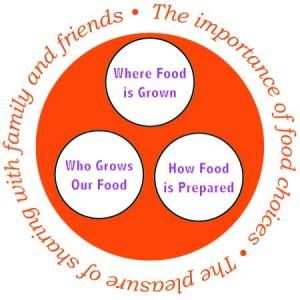
Slow Food Denver's Seed to Table Alliance
Slow Food Denver’s Seed To Table Alliance supports over 45 gardens in the Denver Metro area. Our mission is to create meaningful relationships between young people and food in order to transform the school food system. By placing an emphasis on hands-on experiences, community interaction, and the pleasures of the table, SFD-STT projects help to strengthen the food communities of tomorrow by engaging youth today.
We work closely with Denver area schools to teach students where their food comes from, how to prepare it, who grows it, the importance of food choices and the pleasure of sharing with friends and family.
Students experience all aspects of food production through school gardens. We provide support and training to our member schools through the following methods:
- We provide a liaison between parents, teachers, partner organizations and the school district.
- We help design appropriate vegetable gardens, help procure garden resources, recruit school-based teams and train volunteers to provide programming.
- We teach garden leaders how to teach students to cook culturally relevant fresh foods with our harvest classes and SFD Garden Activities Guide.
- Parents participate through the Youth Farmers’ market, school community events and volunteer activities.
- Our work with food service includes the Garden to Cafeteria Project where students harvest produce from their garden for use in school salad bars.
- We work to increase local procurement both by the school community and food service. Participating schools design and run Youth Farmers’ Markets featuring school garden and local produce.
In 2011, through our efforts, over 1,000 pounds of school-garden grown produce was sold to Denver Public Schools, and through our Youth Farmer's Markets, over 18,000 pounds of locally grown food was sold into Denver neighborhoods, some of which have no other sources of fresh produce.




